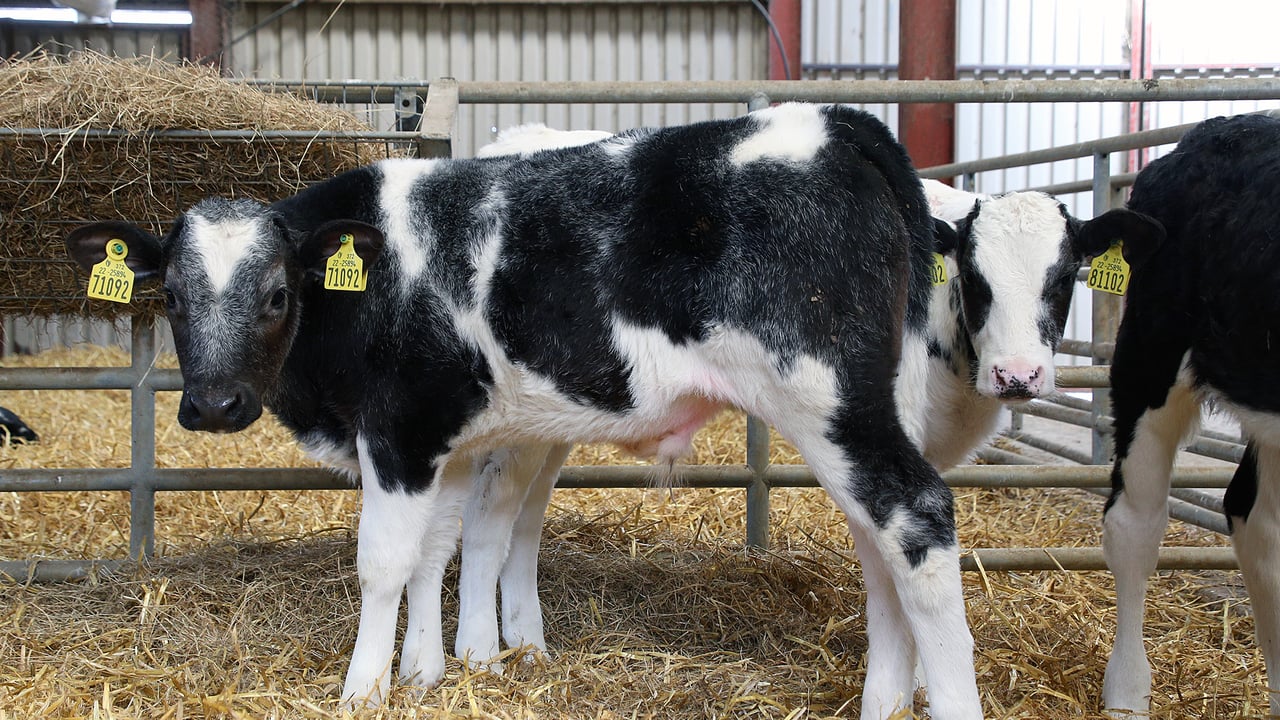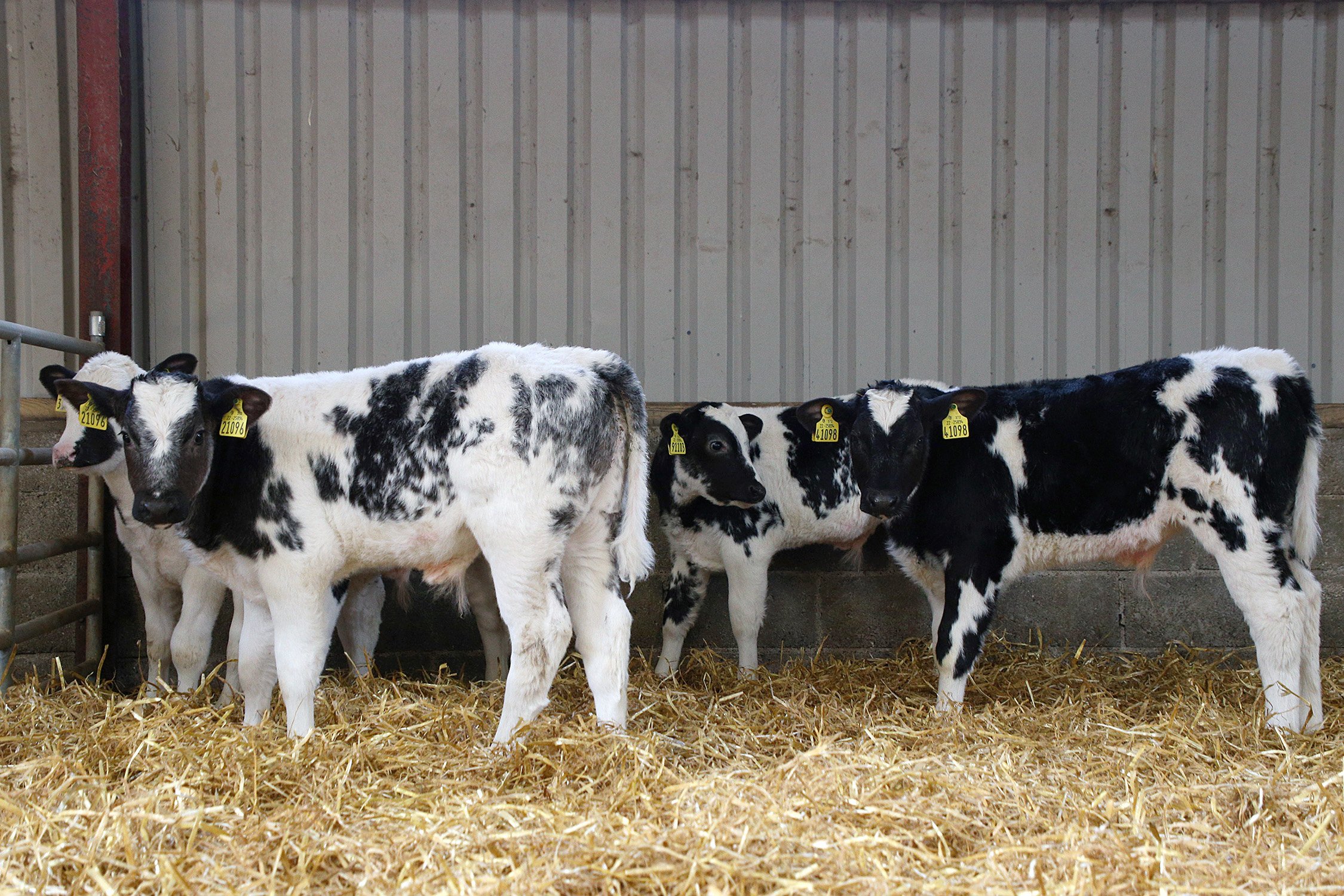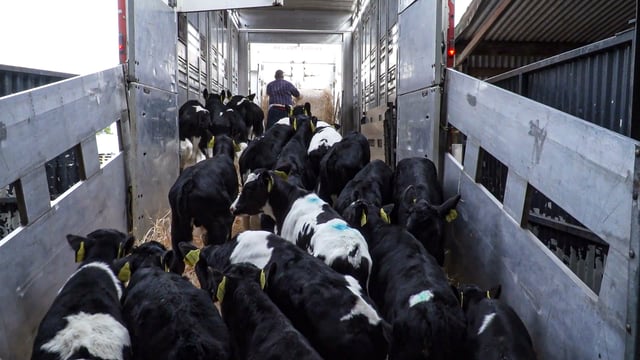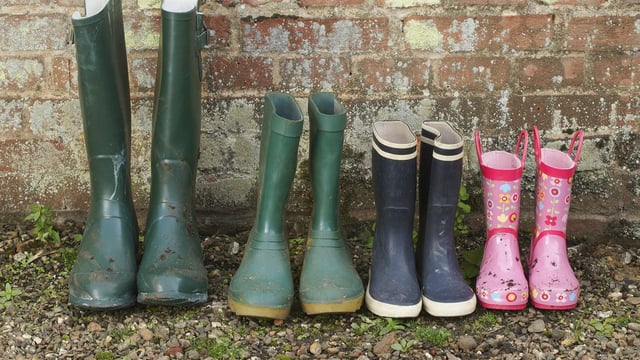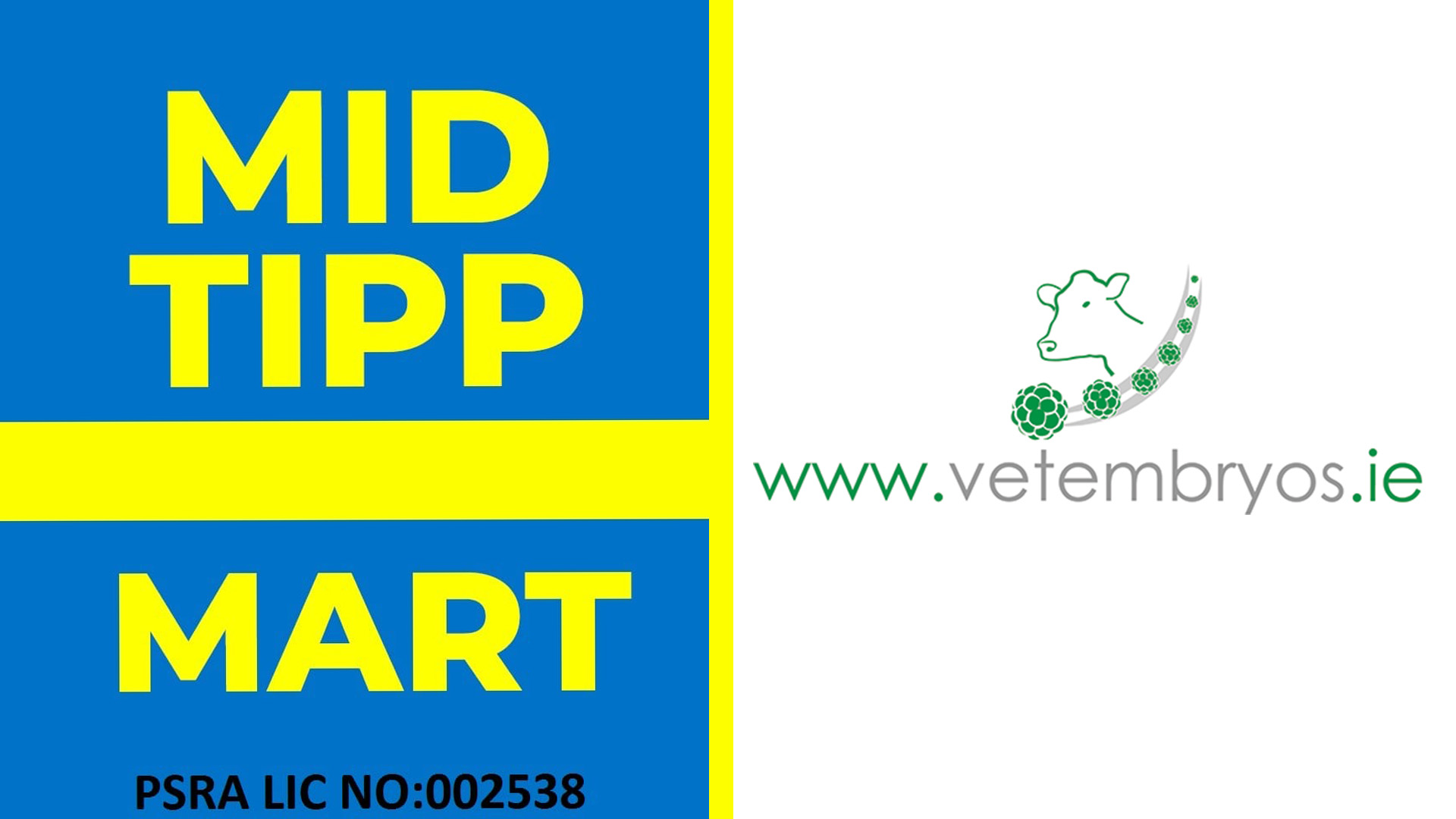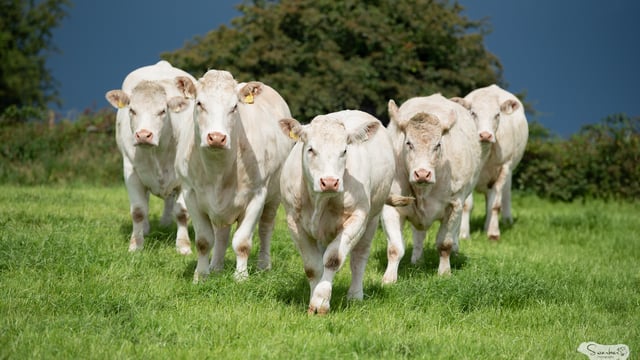Sponsored Article
Sponsored Article
NCBC Dairy-Beef Series Episode 2: Eamon Coughlan and Rose Goulding
Sponsored Article
As part of the National Cattle Breeding Centre (NCBC) Dairy-Beef Series, with Progressive Genetics, Munster Bovine and supported by ABP, NCBC beef programme manager Rose Goulding visits a number of dairy farms throughout the country.
Throughout her visits she aims to highlight the critical role that the dairy farmer plays in ensuring viable and profitable calf-to-beef systems by using NCBC beef sires high in beef sub-index and carcass weight.
In episode two of the series, Rose talks to dairy farmer Eamon Coughlan, based in Glanworth, Co. Cork where the benefit of using beef sires from the Munster Bovine and Progressive Genetics Dairy Beef panels is clearly evident.
Eamon Coughlan is farming with his wife Michelle, their family, and his father Ned near Glanworth, where they are currently milking approximately 440 cows in a spring-calving system. Their herd's economic breeding index (EBI) currently stands at €230.
Prior to cow numbers stabilising in recent years the Coughlan’s bred almost everything to dairy, but for the past two years they have been a lot more selective about which cows are bred to dairy and this has increased the number of cows available to take a beef straw.
Before the breeding season takes off, Eamon identifies the top 50% or his best-performing cows in the herd and breeds them to high-EBI dairy sires in order to ensure that he can continually make genetic gain within his herd.
Working closing with his Munster Bovine artificial insemination (AI) technician John Coughlan, he identifies the cows and heifers suitable for dairy-beef straws. Using a selection of breeds from the NCBC dairy beef programme, his choice of sires has been very successful resulting in minimum calving difficulty this calving season.
Some of the sires which were used in 2022 include the following:
Eamon only retains his Friesian heifers and the remainder of the dairy-beef calves are sold off at 2-3-weeks of age. Eamon has a repeat customer for the majority of his Friesian bull calves with the remainder going to export or the mart.
Ultimately there are plenty of selling options open to Eamon, with the quality of calf that he is producing.
All of the cows bred to dairy beef are vaccinated with Rotavac prior to calving and the calves are vaccinated with Rispoval when they are one week old which results in a superior product which is being sold on to Eamon’s customer.
Healthy vaccinated calves of high genetic merit are an essential part of retaining his repeat customers for his dairy beef calves.
Looking ahead to the 2023, Eamon is going to follow a similar plan as he used for the 2022 breeding season. The maiden heifers get one round of AI, and they follow a Progressive Genetics programme.
The breeds are selected and taking 2022 as an example he used Charolais and Belgian Blues on the larger cows, Limousin thereafter and finally Angus for the smaller cows.
All of the dairy-beef sires used in 2022 were highly reliable sires and Eamon is adamant that reliability in terms of calving ease is a critical success factor for his breeding plan.
Eamon’s main goal is to maximise the value of his calf crop and the value of the product that he is selling to his calf purchaser. By using the best genetics and reliable NCBC sires, Eamon can be assured that he is producing a product that is desirable and it’s a win win for both parties.
He gets the maximum value for his calves and also the calf purchaser is buying a superior quality product.
According to Rose Goulding, the entire focus of the NCBC dairy beef breeding programme is to identify sires that have minimum calving difficulty and maximum carcass weight.
“The dairy beef sires available through Progressive Genetics and Munster Bovine with very high carcass weight deliver progeny with very good calf value and have very good liveweight gain right throughout their life," she said.
"Whether selling them as calves, as stores, or as finishing animals, they will be profitable for the dairy farmer.”
The dairy-beef panels that you will find in the Progressive Genetics or Munster Bovine catalogues are sires that have been proven in the dairy herd. There is a considerable amount of data available on these highly reliable sires, and Munster Bovine and Progressive Genetics can be sure how these sires will perform on their customers dairy herd.
Herdowners can be assured of the following when using beef sires for the dairy herd from Irelands largest dairy beef programme:
- Minimum calving difficulty;
- Shortest gestation;
- Maximum value for calf crop.
“Decide which breed you wish to use," Rose advised.
"Use the panels available in the Munster Bovine and Progressive Genetics Dairy Beed panels to select the appropriate sires for your maidens, second calvers, cows and mature cows.
"Then select the highest carcass weight and beef sub-index within your calving range. Finally record the sire of the calf at birth – otherwise the Commercial Beef Value (CBV) will not be available.”
For more information on the full range of bulls for the upcoming breeding season, please visit Progressive Genetics or Munster Bovine.
Sponsored Article

